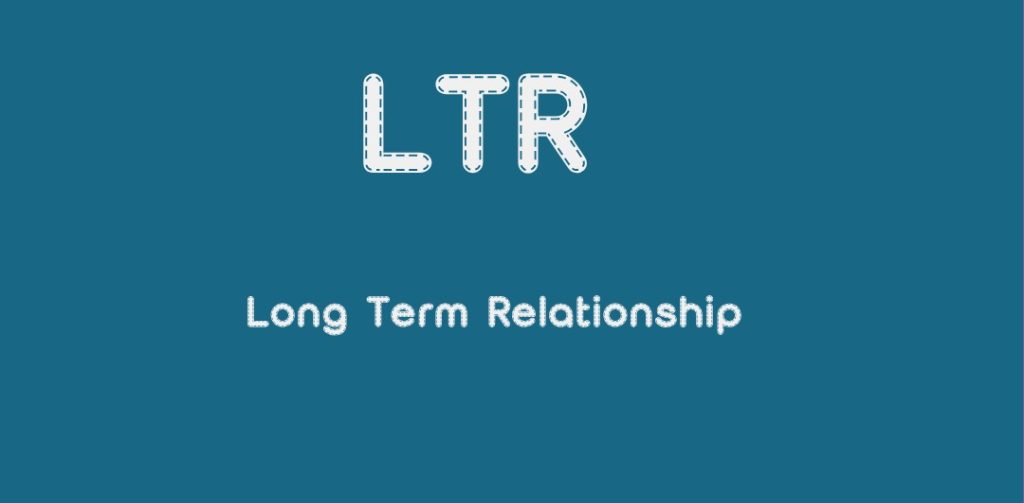You want to improve your IQ test score, and you’re thinking if practicing does work. The answer is yes.
Understanding the nature of IQ tests and how they measure your cognitive abilities can indeed open pathways to enhance your performance.
Like any other test, certain components of an IQ test are learnable and improvable with practice and strategies.
Why You Can Study and Prepare for an IQ Test?
As you may know, IQ tests are designed to measure a range of cognitive abilities, such as logical reasoning, pattern recognition, and problem-solving skills.
Though these tests aim to assess innate intellectual capabilities, certain aspects can be honed with practice.
Preparing for an IQ test doesn’t mean changing your inherent intelligence but rather getting better at the skills being tested.
Familiarity with the types of questions asked can significantly reduce test anxiety and improve performance. Practice can also enhance your speed and accuracy, key factors in test-taking.
Therefore, studying for an IQ test is not only possible but could be a wise strategy to improve your score.
What Components in an IQ Test You Can Study and Improve Better?
Here are some of the key components you can study and improve on for a better IQ test performance.
1. Number Series
Number series questions challenge you to find the pattern in a sequence of numbers and predict the following number(s). These types of questions test your logical thinking and analytical skills.
To excel in this area, you can study different types of patterns – whether they’re arithmetic, geometric, or something more complex.
Practicing with a wide variety of series can help you quickly identify the underlying patterns when you encounter them in a test. Moreover, learning shortcuts and mathematical tricks can significantly reduce the time you spend on each question, allowing you more time for challenging problems.
2. Matrices Series
Matrices series questions involve identifying the pattern within a grid of symbols or figures and predicting the next in the series. These questions test your spatial and logical reasoning skills.
To prepare, try to familiarize yourself with common patterns, such as rotation, reflection, alternation, or progression in complexity. Practicing with puzzles and games that require spatial awareness can also enhance your ability to tackle these types of questions efficiently.
3. Vocabulary and Language
Although not often associated with an IQ test, vocabulary, and language comprehension can sometimes be featured.
Improving your vocabulary through reading, word games, or using flashcards can help you perform better in these sections.
Language comprehension questions may test your ability to understand complex texts or discern patterns in letter sequences, much like cipher decoding. Engaging regularly with challenging reading material or learning the basics of a new language can sharpen these skills
4. Logical Deductions
Logical deduction questions require you to apply rules or conditions to reach a conclusion.
These may include syllogisms, where you deduce a logical conclusion from two or more premises, or conditional reasoning questions, where you identify what outcome must necessarily follow given a particular set of circumstances.
To get better at these, practicing different types of logical puzzles and becoming familiar with logical fallacies and the structure of arguments can be beneficial.
Learning to quickly identify relevant information and ignore redundant details can also speed up your problem-solving
5. Visual Spatial Reasoning
Visual spatial reasoning questions test your ability to manipulate shapes and figures mentally, understand how different shapes fit together, or visualize movements within space.
Developing this skill may involve practicing with puzzles like tangrams or jigsaw puzzles, and games that require you to visualize spatial relationships, such as Tetris.
Sketching out problems can also help enhance your spatial reasoning by allowing you to see potential solutions more clearly.
Tips To Boost Your IQ Test Score
To maximize your performance on an IQ test, there are several strategies you can employ before and during the test.
1. Get Familiar with the Test Format
Knowing what types of questions to expect can significantly reduce test anxiety and improve your performance. Familiarity with the format allows you to allocate your time more effectively and approach each question with confidence.
Explore various IQ tests available online or in test preparation books to get a sense of the common question types and structures.
2. Practice Under Timed Conditions
Many IQ tests are timed, so it’s important to practice answering questions under similar conditions. Set a timer while practicing to get a feel for the pace you need to maintain.
This will help you manage your time efficiently during the actual test, ensuring you have enough time to attempt all questions.
3. Enhance Your Problem-Solving Speed
As you practice, focus not only on getting the answers right but also on increasing your problem-solving speed.
Learn to quickly identify key information and discard irrelevant details. Develop strategies for answering common question types more efficiently. The faster you can work through easier questions, the more time you will have for challenging ones.
4. Rest and Relaxation
The importance of being well-rested before taking an IQ test cannot be overstated. Ensure you get a good night’s sleep prior to the test day to help your mind function at its best.
Additionally, try to reduce stress through relaxation techniques such as deep breathing, meditation, or light exercise. A calm, focused mind is much more capable of problem-solving efficiently.
5. Review Basic Math and Logic Concepts
A quick brush-up on basic math skills like arithmetic operations, fractions, percentages, and basic algebra can go a long way, especially since IQ tests often assess your ability to quickly and accurately perform calculations.
Similarly, familiarizing yourself with basic logic concepts, including conditional statements and common logical fallacies, can improve your performance on logical deduction questions.
Focusing on these fundamentals can help you solve problems more efficiently, saving precious time during the test.
6. Develop a Strategy for Guessing
In some IQ tests, you may not be penalized for incorrect answers, which means guessing could be to your advantage when you’re unsure. Develop a strategy for making educated guesses.
This may include eliminating obviously wrong answers to improve your chances of guessing correctly among the remaining options. Practice making quick decisions about when to spend time thinking through a problem and when to move on and guess.
7. Keep a Positive Mindset
Your mindset entering an IQ test can significantly impact your performance. Confidence, built through preparation and practice, can enhance your cognitive abilities, reducing the likelihood of second-guessing yourself or freezing up on difficult questions.
Remind yourself of your preparation and the strategies you’ve developed to tackle the test.
8. Time Management During the Test
Good time management is also important during an IQ test.
Begin by answering questions you find easier or are more confident about to secure quick wins. Such an approach not only boosts your confidence early in the test but also ensures that you gather as many points as possible from the questions you’re most likely to answer correctly.
Keep an eye on the clock and allocate your time wisely. If you encounter a particularly challenging question, don’t let it eat up your time. Mark it, if possible, and move on to others you can answer more readily. You can always circle back to the harder questions if time permits.
9. Take Practice Tests
One of the most effective ways to prepare for an IQ test is by taking practice tests that mimic the conditions of the actual test as closely as possible.
This will not only familiarize you with the types of questions you’ll encounter but also help you gauge your performance under timed conditions. Analyze your results to identify areas where you need further practice or improvement.
10. Stay Healthy
Your physical health can significantly affect your cognitive performance. In the days leading up to the test, make sure you’re eating a balanced diet, staying hydrated, and engaging in regular physical activity.
Foods rich in omega-3 fatty acids, antioxidants, and vitamins can support brain health and cognitive function. Regular exercise increases blood flow to the brain and can improve your alertness and concentration.
11. Practice Mindfulness and Stress-Management Techniques
Stress can profoundly impact your test performance. Techniques such as mindfulness meditation, focused breathing, or even yoga can reduce anxiety and improve concentration. Practice these techniques daily leading up to the test.
Being able to calm yourself and focus amidst the pressure of the test situation can greatly enhance your cognitive abilities and test performance.
12. Read and Learn Broadly
Broadening your knowledge base and stimulating your mind through reading can indirectly benefit your performance on an IQ test.
Reading widely, especially in subjects outside your comfort zone, can enhance your comprehension skills, expand your vocabulary, and introduce you to new concepts and patterns of thinking.
Being curious can not only expand your knowledge but also improve your ability to solve different kinds of problems presented in IQ tests.
13. Review Mistakes on Practice Tests
Every mistake you make on a practice test is an opportunity for learning. Carefully review each incorrect answer to understand where your reasoning went wrong or where gaps in your knowledge may lie.
This reflective practice can guide your study and ensure you’re continuously learning and improving. Identifying common mistakes can also prevent you from repeating them in the future.
14. Use Quality Study Materials
Not all IQ test preparation materials are created equal. To ensure you’re studying effectively, seek out reputable sources for practice questions and tests.
High-quality materials will more accurately reflect the content and difficulty level of real IQ tests, making your preparation more relevant and effective.
Books, online resources, and preparatory courses designed by experts in the field of cognitive assessment can provide structured practice and insightful strategies. Look for materials that offer detailed explanations for their answers to help deepen your understanding of each question type.
15. Engage in Cognitive Training Games
While not a direct substitute for practicing IQ test questions, cognitive training games can be a fun and effective way to sharpen your problem-solving, memory, and pattern recognition skills.
Games that challenge your brain to think in new ways can improve your mental agility. However, it’s important to choose games that are scientifically validated to ensure they are genuinely beneficial for your cognitive skills.
16. Build Your Test Endurance
IQ tests, especially those that are timed, can be mentally exhausting. Building up your test-taking endurance through regular, prolonged practice sessions can help you maintain focus and performance throughout the entirety of the test.
Begin with shorter practice sessions and gradually increase the duration as your stamina improves. This method will train your brain to be more alert and focused, which reduces tiredness when tests take a long time.
It’s like to training for a marathon; you start with shorter distances and gradually build up to the full length. Similarly, by incrementally increasing your practice session lengths, you’ll be better prepared mentally for the rigors of the full test.
17. Seek Feedback
If possible, seek feedback on your practice tests from someone knowledgeable, like a mentor or teacher familiar with IQ tests.
Constructive feedback can provide insights into your problem-solving process and highlight areas that may need more attention.
Conclusion
While an IQ test aims to measure inherent cognitive abilities, there are indeed strategies and preparations you can undertake to potentially improve your test performance.
By focusing on the specific components of the test, adopting effective study habits, and caring for your mental and physical well-being, you can enhance your ability to perform to the best of your capabilities.





